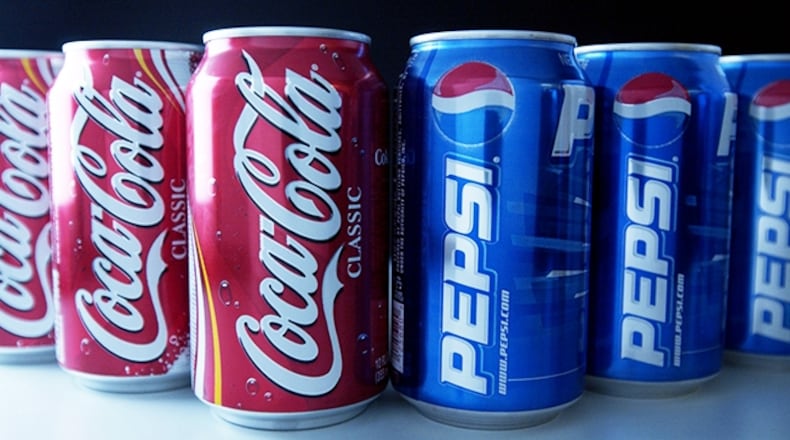Originally posted Friday, August 17, 2018 by RODNEY HO/rho@ajc.com on his AJC Radio & TV Talk blog
The Coke-Pepsi wars over the decades has been well chronicled in magazine and newspaper stories, books and even documentaries. But it’s inevitable that the next stop will be a podcast, the hottest medium to tell stories in a different way.
Wondery is tackling the well-trodden territory using re-enactments as well as narration over six episodes of its "Business Wars" series, which also includes Nintendo vs. Sony and Netflix vs. Blockbuster.
In the first "cola wars" episode made available yesterday, original Coca-Cola creator John Pemberton comes to life and, yes, his original recipe did actually include cocaine. But he became ill and sold the rights of his soda recipe to Asa Candler. Candler offered free Coke coupons at soda fountains, helped turn Coca Cola into a national phenomenon.
Pepsi is introduced partway through the first episode and its road to success was far rockier. Writer Tristan Donovan, who is also author of "Fizz: How Soda Shook Up the World," said Pepsi went belly up twice before it found its footing to become Coke's biggest rival.
In an interview, Donovan said Coca Cola aggressively sued competitors in the early years who were seen as copycats. Pepsi was one of the few survivors of this legal onslaught. In the 1930s during the Great Depression, Pepsi was able to draw customers by offering 12-ounce bottles instead of 6-ounce bottles for the same price. “That got Pepsi going,” Donovan said. “It gave them traction and they’ve been building ever since.”
He noted that the peak time for the Coke-Pepsi marketing wars was the 1950s into the 1990s. Coke thrived on advertising, with classics such as the “I’d Like to Teach the World to Sing” and “Mean Joe” Green ads.
Pepsi positioned itself as the youthful alternative, the "Pepsi Generation" with stars ranging from Ray Charles to Michael Jackson to Britney Spears hawking the drink. And yes, blind taste tests have proven people generally prefer the sweeter Pepsi, as shown in the "Pepsi Challenge."
But that also led Coke down the infamous New Coke path, a drink formula more attuned to Pepsi's taste. But Coke acolytes rebelled and "Classic Coke" returned soon after. (New Coke as a flavor stumbled on until 2002.) An entire podcast episode is devoted to that 1985 debacle.
Soda consumption peaked in 1998 and has been falling ever since. The intensity of the rivalry waned as both companies diversified beyond sugary carbonated drinks.
Donovan said the challenge of a podcast is you have very limited time and you have to find ways to engage readers without getting too caught up in business jargon and facts.
“It’s like a train on a track,” he said. “It just keeps going. People don’t really want to rewind to remember what’s going on. You need more scenes with audio in the background, not just narration. I can’t get buried in details about franchise arrangements. That’s too dry. I want to keep it moving.”
He makes a caveat at the end of each podcast noting that any dialogue in the podcast is approximated. Obviously, they were not in the room to capture what Candler told Pemberton. But conversations can better capture the attention of listeners.
Donovan said he spent time in Coke's hometown Atlanta to do research, mostly at Emory University, which houses a lot of Coke historical documents. And yes, he did go to the World of Coca-Cola museum as well. "I loved the tasting room at the end," he said, "just to see all the bizarre flavors from around the world."
About the Author
Keep Reading
The Latest
Featured



